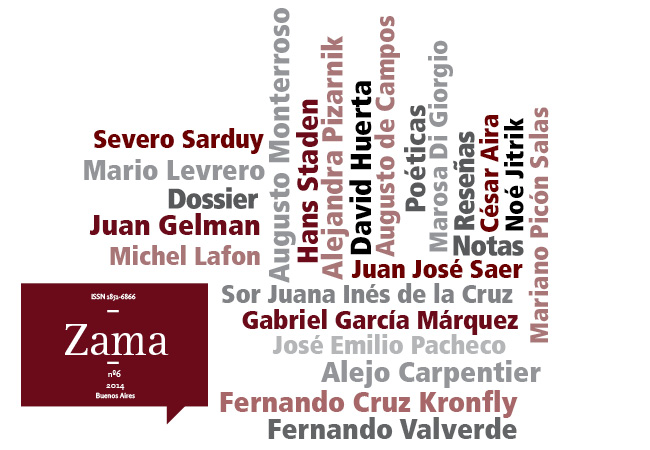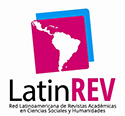La lengua extranjera de Alejandra Pizarnik. Notas sobre los <i>Diarios</i>
Keywords:
Alejandra Pizarnik, Franz Kafka, journal, minor literature, deterritorialization
Abstract
We could say that the writing of Pizarnik, such as Franz Kafka’s writing, is also deterritorialized in the sense that Deleuze and Guattari propose. Daughter of Jewish immigrants, Pizarnik maintains with the spanish language a troubled relationship in which we can see, in addition, some troubles with national culture. To write without possessing a language, to become foreign in her own tongue, constitutes perhaps the pizarnikiana strategy to be legitimized. Kafka’s writing is probably the literary reference mentioned more forcefully in the notes of the last years of the sixties; he is the model to continuing in the search of a style that Pizarnik called “normal prose.” To examine Pizarnik’s Diaries trough the questions involved in Kafka’s writing, illuminates some areas of analysis as the merger between living and writing, the “true condition” of the texts that transcends the autobiographical (Nora Catelli), and the strangeness in the sociological sense of George Simmel.Downloads
Download data is not yet available.
How to Cite
Lerman, J. (1). La lengua extranjera de Alejandra Pizarnik. Notas sobre los <i>Diarios</i>. Zama, 6(6), 59-65. https://doi.org/10.34096/zama.a6.n6.1527
Issue
Section
Artículos












